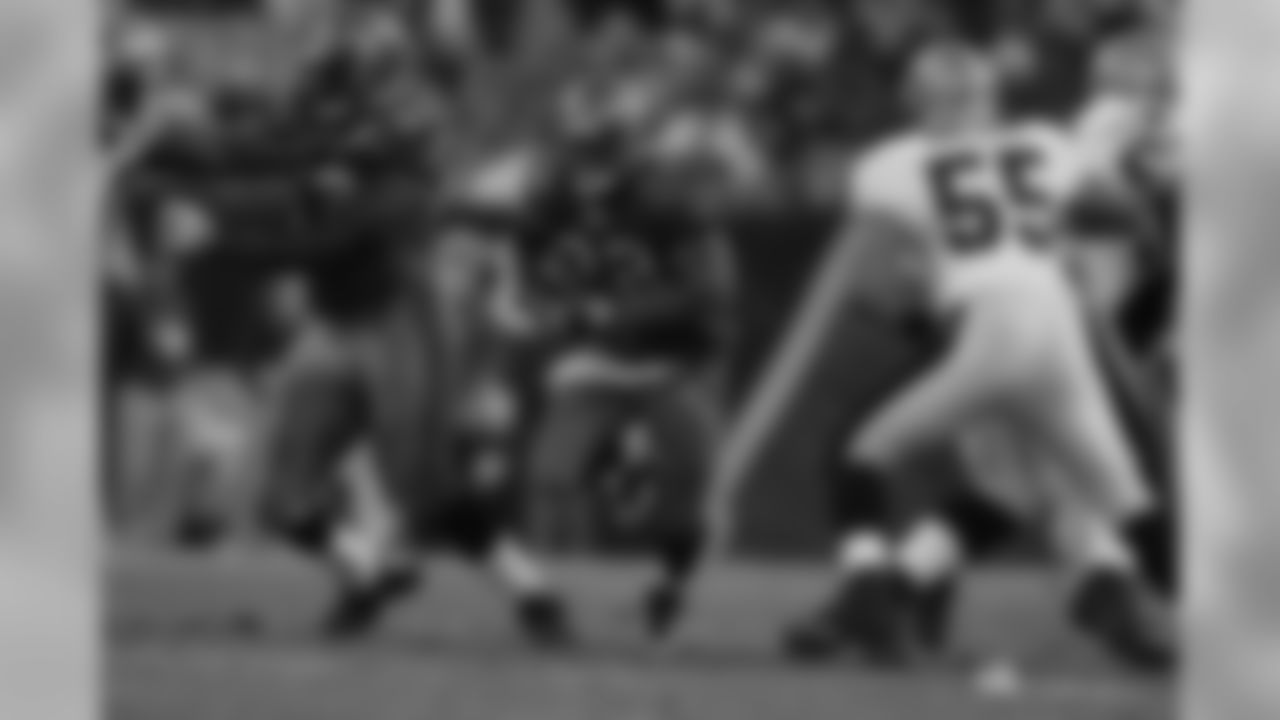Last November, thanks to a response regarding his approach to game-planning, Dirk Koetter was briefly labeled as an "anti-analytics" coach. When it comes to drawing up his play sheet for a specific opponent, Koetter values breaking down tape of that opponent over studying a page of team statistics.
In reality – and has gradually become clear over his two seasons with the Buccaneers, first as offensive coordinator and now as head coach – Koetter uses statistical analysis as much as any coach. Perhaps more than some. In particular, he has studied and distilled the factors that are most correlated with winning and regularly presents his team with a list of statistical goals before a game.
The distinction, as is always the case with statistics, is how they are wielded. Numbers can be illuminating, even predictive. For Koetter, they will never take the place of the scouting he can do with his own eyes, but they can assist in that process.
That's our goal with Football Geekery. Each week, we're going to give you a sampling of statistical and/or historical analysis, hopefully in a way that is relevant to the Buccaneers' current state of affairs. This week, we look a little closer at the numbers behind the fairly obvious concept that great road success is the mark of a playoff contender. We also look at Bryan Anger's impressive percentage of punts that go at least 50 yards and take a quick glance at the some blitz-rate numbers.
**
1. Road to the Postseason
The Buccaneers will finish off their 2016 regular-season road schedule on Saturday in New Orleans. If they can claim a victory, they will match a franchise record for road wins in a single season. The 2002 Super Bowl team went 6-2 away from home as part of an overall 12-4 record that resulted in a first-round playoff bye. The 2016 campaign is shaping up more like the 2010 season, in which a 6-2 record on the road was part of an overall 10-6 finish. That 2010 squad actually missed the playoffs on a fifth-level tiebreaker against the eventual Super Bowl-champion Green Bay Packers; this year's team has a very good shot of making the postseason with a 10-6 record.
That the Buccaneers have a season with six road wins that didn't end the playoffs is actually fairly surprising. Since the NFL expanded to a 16-game schedule in 1978, winning at least six of eight road games has almost been a postseason guarantee. Just look at the 2016 season: Three teams (Dallas, new England and Oakland) have won at least six road games already and all three have already clinched playoff berths.
A look back at all of the match-ups between the Buccaneers and the Saints.

Nov. 5 2017, L 10-30

Dec. 24 2016, L 24-31

Dec. 11 2016, W 11-16

Dec. 13 2015, L 17-24

Sep. 20 2015, W 26-19

Dec. 28 2014, L 20-23

Oct. 5 2014, L 31-37

Dec. 29 2013, L 17-42

Sep. 15 2013, L 14-16

Dec. 16 2012, L 0-41

Oct. 21 2012, L 28-35

Nov. 6 2011, L 16-27

Oct. 16 2011, W 26-20

Jan. 2 2011, W 23-13

Oct. 17 2010, L 6-31

Dec. 27 2009, W 20-17

Nov. 22 2009, L 7-38

Nov. 30 2008, W 23-20

Sep. 7 2008, L 20-24

Dec. 2 2007, W 27-23

Sep. 16 2007, W 31-14

Nov. 5 2006, L 14-31

Oct. 8 2006, L 21-24

Jan. 1 2006, W 27-13

Dec. 4 2005, W 10-3

Dec. 19 2004, L 17-21

Oct. 10 2004, W 20-17

Dec. 7 2003, W 14-7

Nov. 2 2003, L 14-17

Dec. 1 2002, L 20-23

Sep. 8 2002, L 20-26

Dec. 23 2001, W 48-21

Nov. 7 1999, W 31-16

Oct. 25 1998, L 3-9

Nov. 24 1996, W 13-7

Sep. 18 1994, L 7-9

Sep. 24 1989, W 20-10

Sep. 22 1985, L 13-20

Sep. 9 1984, L 13-17

Oct. 23 1983, L 21-24

Dec. 5 1982, W 13-10

Nov. 29 1981, W 31-14

Oct. 14 1979, L 14-42

Dec. 17 1978, L 10-17Not Pictured:Nov. 1 1992, L 21-23Oct. 20 1991, L 7-23Nov. 11 1990, L 7-35Sep. 25 1988, L 9-13Dec. 6 1987, L 34-44Oct. 19 1986, L 7-38Dec. 11 1977, W 33-14
Of course, this isn't surprising. Most teams that are good enough to win 75% or more of their road games are going to play just as well, if not better, at home. Even a .500 record at home paired with a 6-2 road mark leads to an overall 10-6 finish, and a 10-6 record is good enough to make the playoff field in most cases. In other words, duh. This isn't exactly ground-breaking analysis here.
Still, it's interesting just how completely six-plus road wins paves the way to the playoffs. From 1978-2015 there were 36 16-game campaigns in the NFL, excluding the 1982 and 1987 strike seasons. In that span, 119 teams won at least six road games, and 112 of them made the playoffs.
The following chart shows a team-by-team breakdown of instances of six-plus road wins in a single season from 1978-2015, excluding the two strike years. It's separated into six, seven and eight-win seasons and in each of those three categories the total number of seasons is listed followed by how many of those seasons ended in the playoffs.

Furthermore, seasons with six-plus road wins usually lead to a division title. That looks to be the case this year, as New England has already clinched the AFC East and both Oakland and Dallas are currently leading their divisions.
Of those 119 seasons described above, 92 have ended in division titles. That means 27 teams won at least six road games but did not win their division, but in 16 of those 27 instances the division in question was won by another team that also won six-plus road games.
It's worth noting that the Atlanta Falcons, who currently lead the NFC South by one game over the Buccaneers, also have a 5-2 road record so far this season. They play their final regular-season road contest on Saturday in Carolina. If the Falcons get their sixth road win they will need only to finish the season with a home victory over New Orleans to take the division. If the Falcons do not win that last road game, it will open the door for the Buccaneers to win the division, potentially. That sixth road win usually means the playoffs; it looks very strongly like that will be the case in the NFC South this year.
2. Constant Anger
Two weeks ago, when the Buccaneers defeated the Saints, 16-11, at Raymond James Stadium, the outcome was driven mostly by a dominant defensive performance by the home team, as well as mostly good work on special teams.
There was on sequence of plays near halftime, however, that included two nearly-consecutive bad moments in the kicking game. First, a strange hop on a kickoff bouncing sideways went off the facemask of return man Josh Huff and out of bounds inside the one-yard line, directly leading to a safety on the next play. Then, on the free kick that followed the safety, punter Bryan Anger's kick sailed out of bounds, resulting in a penalty that gave the Saints possession at the 50-yard line.
READ: Special Ops- Bryan Anger
Anger didn't hit the ball poorly, but he blasted it a little too high and a little too left of center on a windy day, and the breeze caught it and took it across the sideline. The good field position resulted in three points for the Saints just before halftime. After the game, Koetter expressed his surprise at a play involving Anger going poorly, simply because it hadn't happened all year.
"Every team I've ever been on, you want to dog-cuss the punter at least 20 times," said Koetter, "and I can't think of one time all year that I thought Bryan hit a punt that was a shank."
Indeed, Anger has been amazingly consistent in his first year as a Buccaneer after four seasons with the Jacksonville Jaguars. Two weeks ago, Buccaneers.com ran a special piece detailing some of Anger's statistical accomplishments in 2016, which are significant enough that he was named a Pro Bowl alternate on Tuesday.
Here's another way to measure Anger's consistency: How often his punts travel at least 50 yards. Anger is on pace to break a number of franchise single-season punting records, and in this category he's also performing as well as any Buccaneer punter since the stat has been recorded.
Anger has punted 62 times this year, and 25 of them have gone for 50 or more yards. He's tied for fifth in the NFL with the most 50+-yard punts and stands ninth in percentage of punts that go that far, at 40.3%. If one removes Matt Wile, who has punted just four times this year, from the list, Anger ranks eighth in that latter category.
Statspass has 50-yard punt data compiled through the 1995 season, and in that span no Buccaneer punter has ever hit 40% or more of his kicks for 50 or more yards. In Tampa Bay's last two seasons, Jacob Schum hit 17.9% of his punts that far in 2015 and Michael Koenen had the exact same percentage in 2014. The highest recorded mark in this category is 39.5% by Koenen in 2012.
The chart below shows the Bucs' punter each season, his percentage of punts that went for 50 or more yards and where that percentage ranked in the NFL. The final two columns show the 50-yard punt percentage of the NFL's best performer that season and the number of punters who hit at least half of their punts for 50 yards in that campaign.

Again, Anger is currently holding onto the best percentage of 50-yard punts the Bucs have had in the 22 years for which the data is available. As seen in both the 50-yard percentage column and the NFL rank column, the Buccaneers have not often enjoyed one of the league's best in this category. The last time Tampa Bay had a punter in the top 10 in this category was 2005, when Josh Bidwell made the Pro Bowl.
Also worth noting is the overall improvement of the league's punting numbers. Over the entire 12-year span from 1995-2006, only two punters surpassed 50% in this category. In the last decade, however, it's been done 14 times, including by five different punters in 2011. In 1999, Mark Royals hit 27.8% of his punts for 50 yards and that was the seventh-best mark in the NFL. This year, that would rank 27th.
3. To Blitz or Not To Blitz
The Buccaneers have not been one of the more blitz-happy teams in the NFL this season, and during their recently-ended five-game winning streak it was consistent pressure from the front four that drove a defensive resurgence.
According to Statspass, the Buccaneers rank 22nd in blitz percentage on first down (18.6%), 25th on second down (20.4%) and 22nd on third own (28.1%). The Los Angeles Rams have been most likely to blitz on third down this year (51.9%) followed by Tampa Bay's upcoming opponent, New Orleans (43.2%).
Some teams blitz more in specific situations. The Seattle Seahawks, for instance, have blitzed on a league-high 67.3% of the time they've faced a third down of 7-10 yards. In stark contrast, the Atlanta Falcons have blitzed just 17.1% of the time in that situation. The Buccaneers land in the middle, blitzing on 35.0% of their third downs of 7-10 yards.
When the Bucs have blitzed, they've achieved decent results. Below is a breakdown of the team's blitz percentages when facing third downs of differing distance.

Those are very good sack percentages on third and 4-6. The Bucs' 40.0% rate when blitzing is actually the highest in the league in that yardage range.
Most of these numbers are merely curiosities and not proof that Tampa Bay should be blitzing more or less often. Blitzing is obviously a high-risk, high-reward strategy because it weakens pass coverage in attempt to boost the pass rush. Noting the sack percentage in blitzing situations does not take into account what has happened on all the plays in which the passer was not brought down. Tampa Bay's pass defense has been very good in the second half of the season, an indication of rush and coverage working well together, no matter how many men are sent into the backfield.























